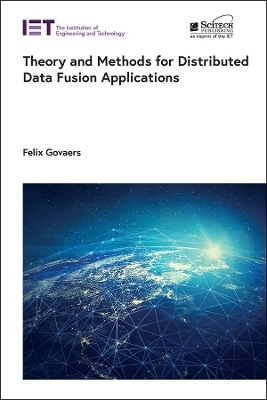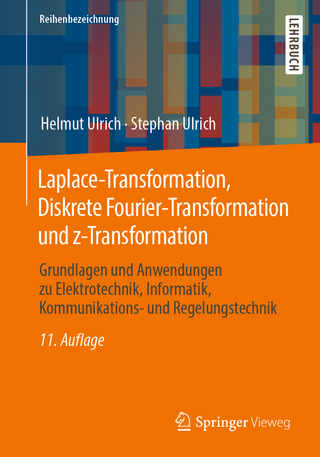
Theory and Methods for Distributed Data Fusion Applications
Institution of Engineering and Technology (Verlag)
978-1-83953-439-3 (ISBN)
With the rise of digitalization, AI and modern data communication, engineering is increasingly challenged by the complexity of systems-of-systems, in which perception sensors have their own processing mechanism, information is merged at some centric entity, and cross-platform exchange of data is conceptualized in a holistic approach. Therefore, distributed architectures for data fusion, state estimation, and multi target tracking have been becoming increasingly important. The use of multiple sensors to perceive and compute the situational awareness picture leads to the generation of vast amounts of data, which need to be filtered, enriched, interpreted, and evaluated. This becomes infeasible without the notion of distributed algorithms.
Theory and Methods for Distributed Data Fusion Applications first covers the fundamentals of stochastic motion, which constitutes the underlying models in target tracking and parameter estimation. The next chapter exposes the most important basic target tracking and state estimation algorithms and in the next those methods are extended to the estimation of full trajectories with states from multiple time stamps. Then the book introduces the problem of distributed fusion and presents first solutions to it. Then the final 3 chapters cover track fusion methods with unknown cross covariances, the Distributed Kalman Filter and its variants and finally methods for track-to-track association.
This book is designed to provide state-of-the-art approaches and algorithms to the interested engineer for data fusion in distributed systems providing a profound understanding of the constraints, assumptions, benefits, and drawbacks. To this end, the derivation of each method is given in detail without omitting auxiliary calculations or intermediate steps.
Dr. Felix Govaers received his Diploma in Mathematics and his Ph.D. with the title "Advanced Data Fusion in Distributed Sensor Applications" in Computer Science, both at the University of Bonn, Germany. Since 2009 he has worked at Fraunhofer FKIE in the Sensor Data Fusion and Information Processing department where he led the research group "Distributed Systems" for three years. Since 2017 he is the deputy head of the department. The research of Felix Govaers is focused on track-to-track fusion, state estimation in non-linear applications, and quantum algorithms for information fusion. This includes quantum optimization methods, tensor-decomposition techniques, processing of delayed measurements, the Distributed Kalman filter, and track correlation mitigation. He is also interested in advances in state estimation such as particle flow and homotopy filters and the point process theory approaches. Felix Govaers is an active member of the IEEE Aerospace and Electronic Systems Society (AESS) where he serves as an Associate Editor and is the financial chair of the Germany Section. He also is an AESS Distinguished Lecturer and Short Course Instructor.As an elected member of the Board of Directors (BoD) for the International Society for Information Fusion (ISIF), he is actively contributing to the future of the information fusion community. At the University of Bonn, he serves as a lecturer since 2014 with seminars, labs, and lectures on distributed data fusion systems and quantum algorithms for data fusion.
Chapter 1: Introduction
Chapter 2: Stochastic motion
Chapter 3: Bayesian state estimation and target tracking
Chapter 4: Trajectory estimation
Chapter 5: Track-to-track fusion with known correlations
Chapter 6: Track-to-track fusion with unknown correlations
Chapter 7: Distributed Kalman filter
Chapter 8: Track-to-track association and distributed detection
Appendix A
Appendix B
| Erscheinungsdatum | 15.08.2023 |
|---|---|
| Reihe/Serie | Radar, Sonar and Navigation |
| Verlagsort | Stevenage |
| Sprache | englisch |
| Maße | 156 x 234 mm |
| Themenwelt | Mathematik / Informatik ► Informatik |
| Technik ► Nachrichtentechnik | |
| ISBN-10 | 1-83953-439-7 / 1839534397 |
| ISBN-13 | 978-1-83953-439-3 / 9781839534393 |
| Zustand | Neuware |
| Haben Sie eine Frage zum Produkt? |
aus dem Bereich


